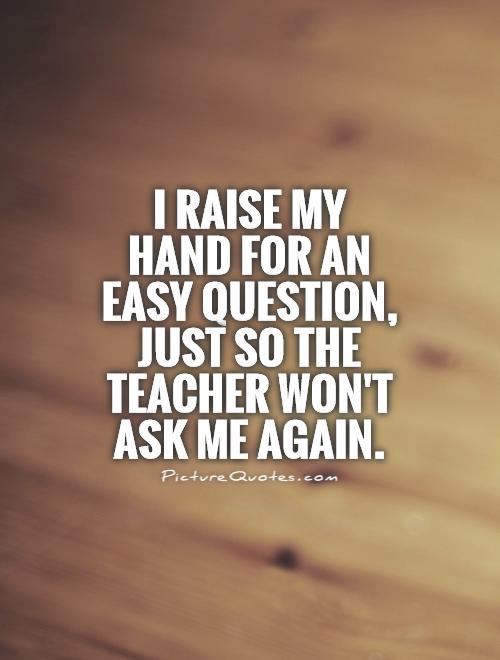I raise my hand for an easy question, just so the teacher won't ask me again

I raise my hand for an easy question, just so the teacher won't ask me again
In a classroom setting, there are often moments when students may feel unprepared or unsure of the answer to a question being asked by the teacher. This can lead to feelings of anxiety or fear of being put on the spot in front of their peers. In these situations, some students may resort to raising their hand for an easy question, just so the teacher won't ask them again.This behavior is not uncommon among students, as it provides a sense of relief and temporary escape from the pressure of having to come up with a correct answer on the spot. By volunteering to answer an easy question, students can avoid the risk of being embarrassed or feeling inadequate in front of their classmates. It allows them to maintain a sense of control over the situation and avoid drawing attention to themselves in a negative light.
However, while this strategy may provide a temporary solution to the immediate discomfort of being called upon by the teacher, it can also have negative consequences in the long run. By consistently opting for easy questions and avoiding more challenging ones, students may miss out on valuable opportunities for growth and learning. They may become complacent in their studies and fail to push themselves to reach their full potential.
Furthermore, constantly dodging difficult questions can hinder a student's ability to develop critical thinking skills and problem-solving abilities. By shying away from challenges, students may struggle to think creatively and analytically, which are essential skills for success in academics and beyond.












 Friendship Quotes
Friendship Quotes Love Quotes
Love Quotes Life Quotes
Life Quotes Funny Quotes
Funny Quotes Motivational Quotes
Motivational Quotes Inspirational Quotes
Inspirational Quotes